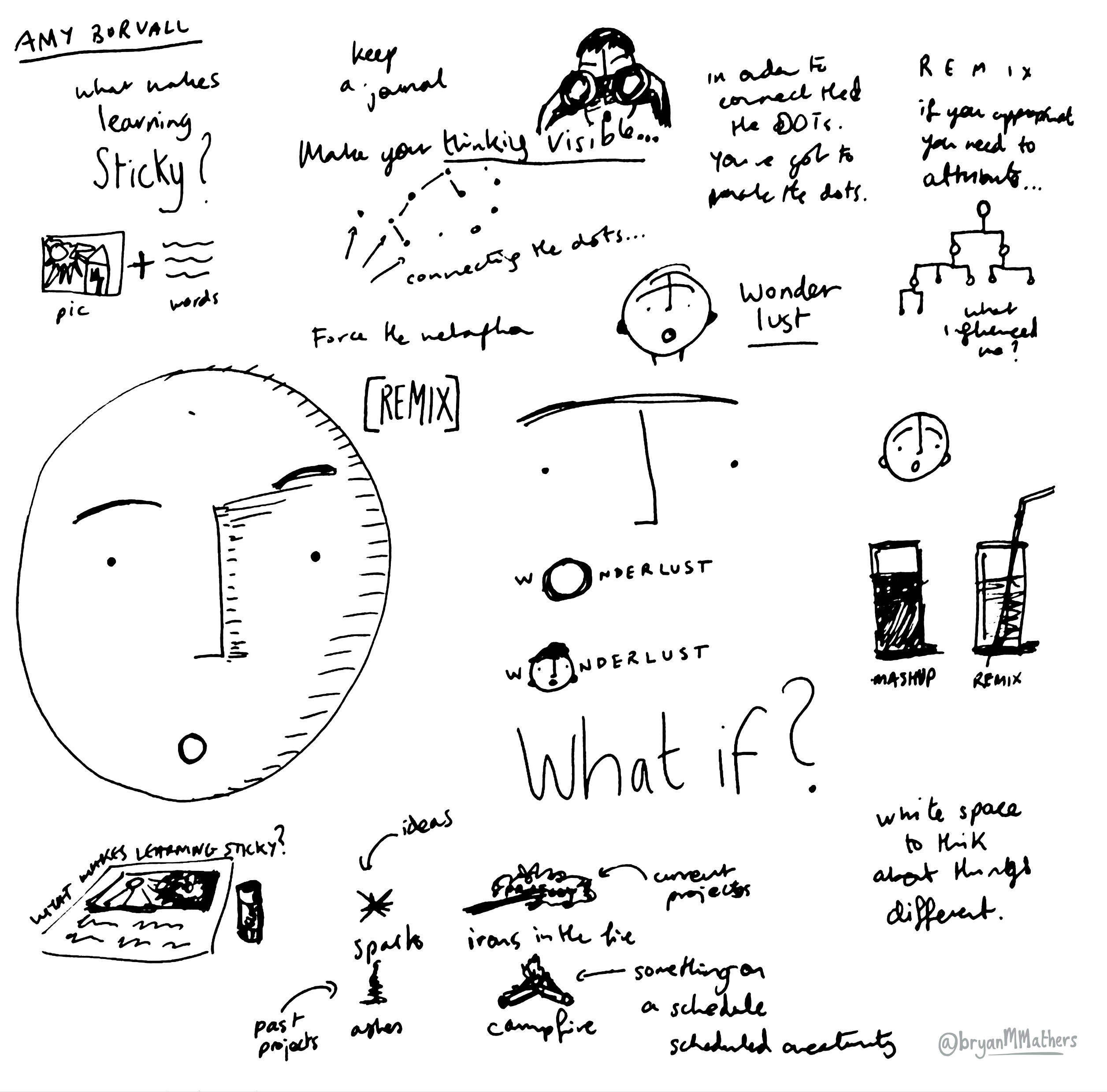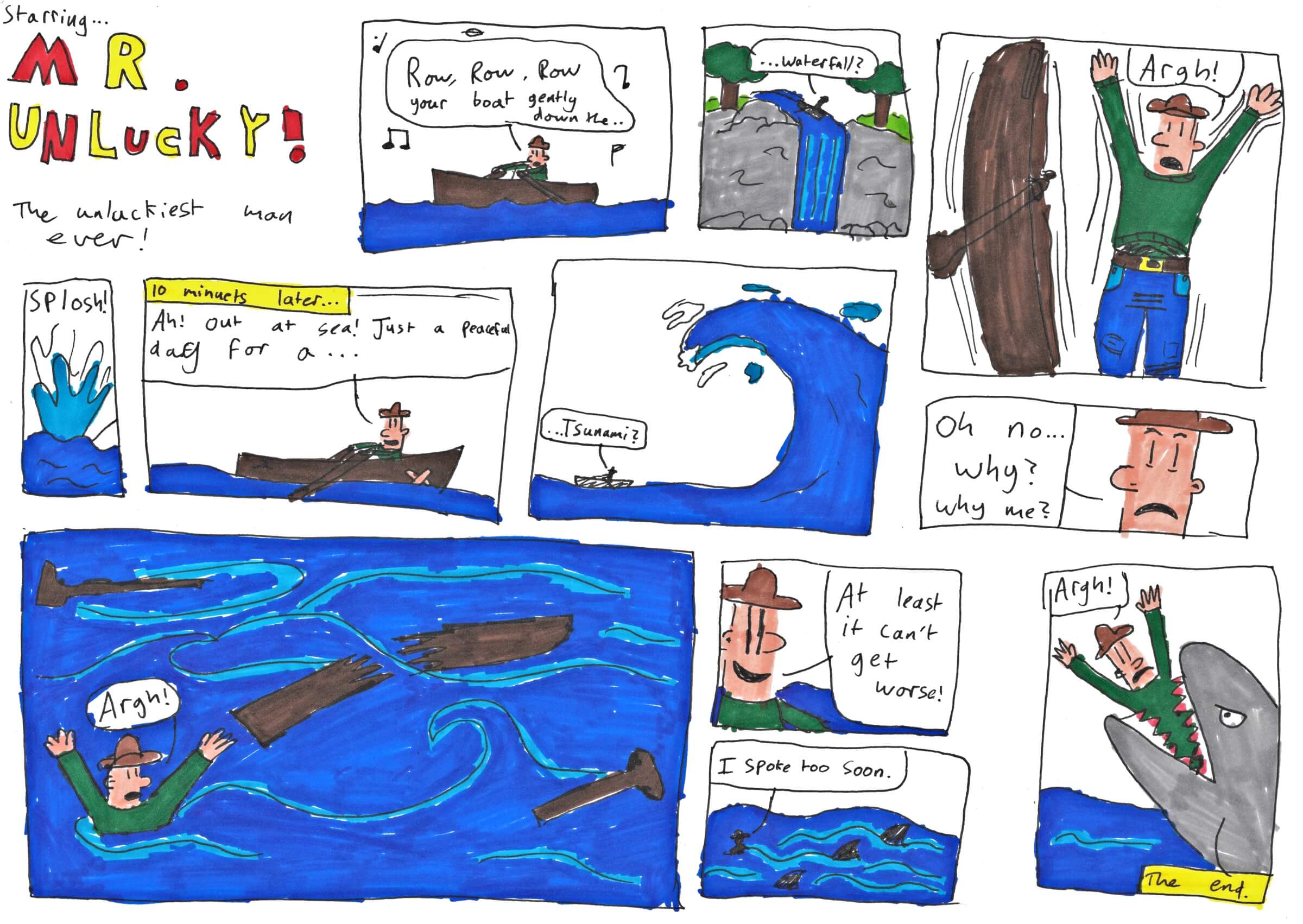One of the areas I really enjoy is what I call Conversational Thinkery. Listening to a podcast, or being part of a conversation, and drawing what appears in my head. This thinkery was from a podcast conversation featuring Amy Burvall on the Creative Process.
Author: Bryan Mathers
-

Avocado
Ask your eyes to notice. What’s the light doing? Why is it doing that? Highlights, lowlights, shadow.
Sometimes a drawing just works. This avocado was triggered from a comment by Laura Hilliger.
In Kiswahili, it’s a parachichi or even sometimes embe ya mafuta (literally: oily mango…).
-
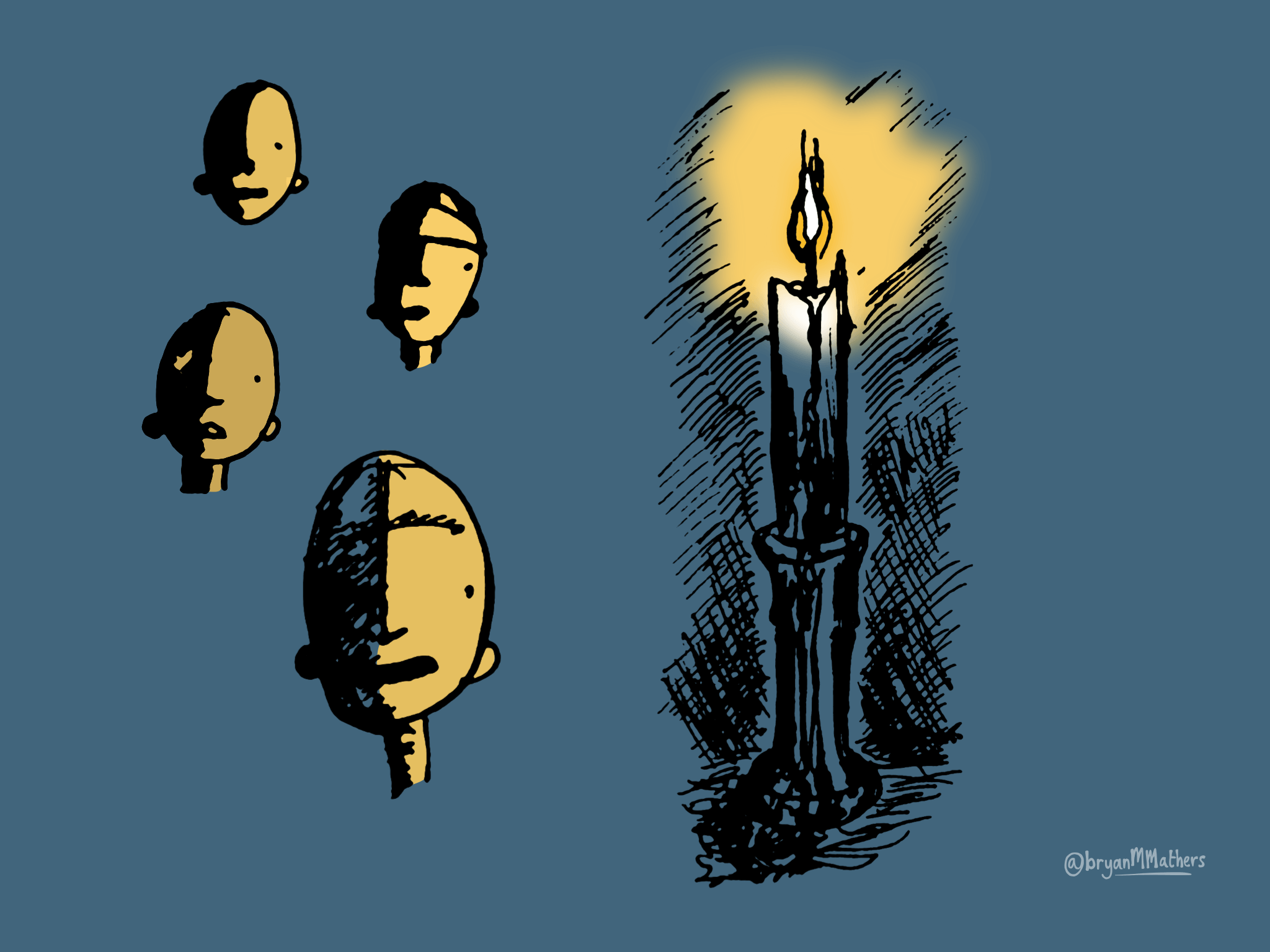
Thinking fast and slow
OK me, lets sort this stuff into two piles.
Blink – first,
Smile – first,
Scratch head – first,
Think what to write in this narrative – second,
Typing the words – first,
Sniff – first,
Hear music – first,
Wonder about a lyric – second,
Realise I’m being distracted by music – second,
Turn off music – second,
Glance at the drawing – first,
See the individual highlights and lowlights – second…System 1 and System 2. That’s how my brain works, thinking fast and slow…
-
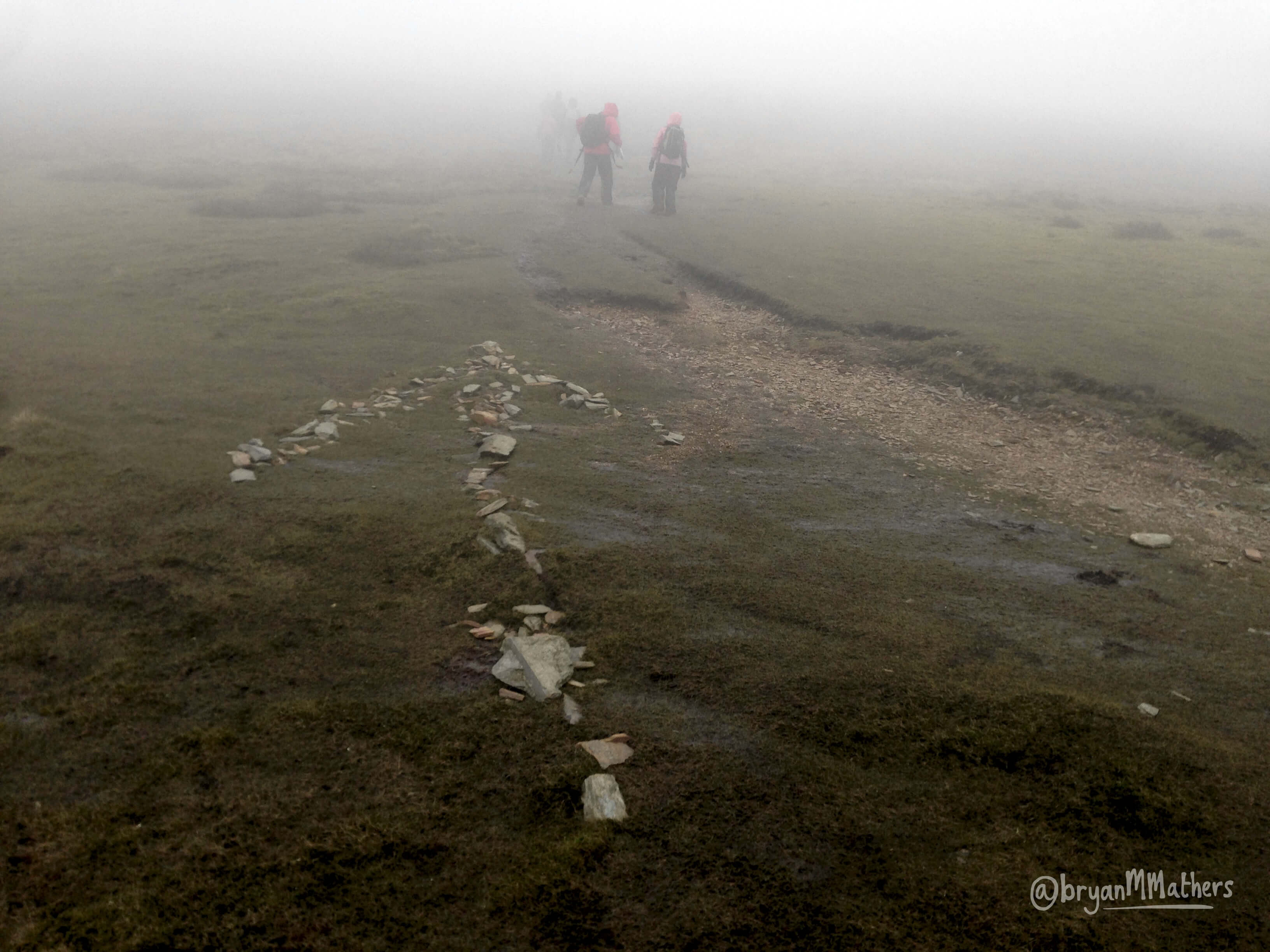
The Big Arrow
This cloud is going to lift in 5 minutes.
I said it so often it became my punchline. A dad joke – only to be appreciated by other dads (and sometimes their wives).
We need to turn off the path somewhere near here to get to the top of the mountain.
Nothing says top of a mountain than a BIG FAT ARROW.
(from two families up a mountain near the summit of Black Combe, Lake District, UK) -
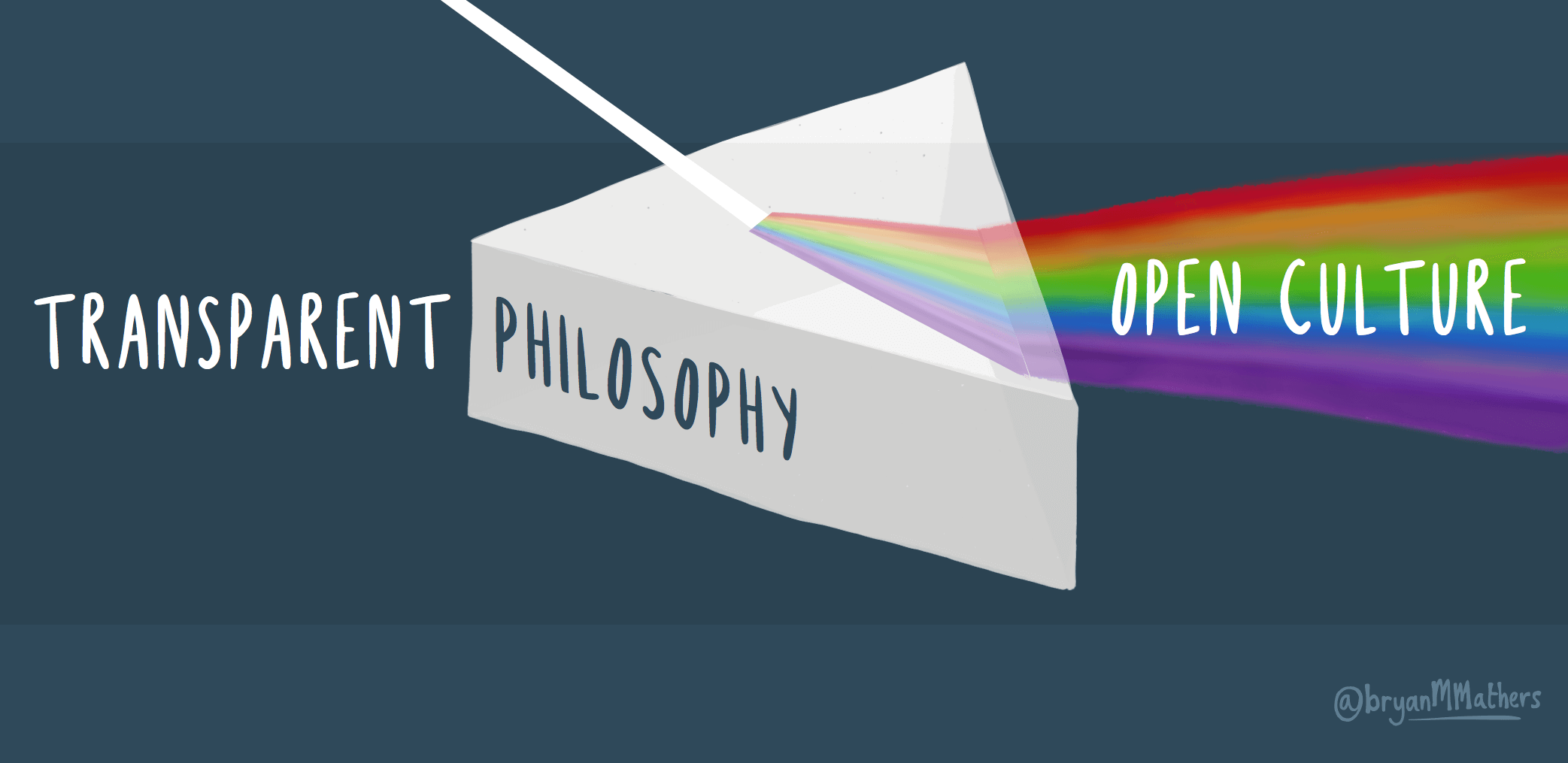
Transparent and Open
I’ve been thinking about Cooperative business models recently, thanks to Doug Belshaw and John Bevan. Engaging with different ideas means playing out scenarios, and like splitting light through a prism, you can’t quite imagine how it will be until you shine it through.
-
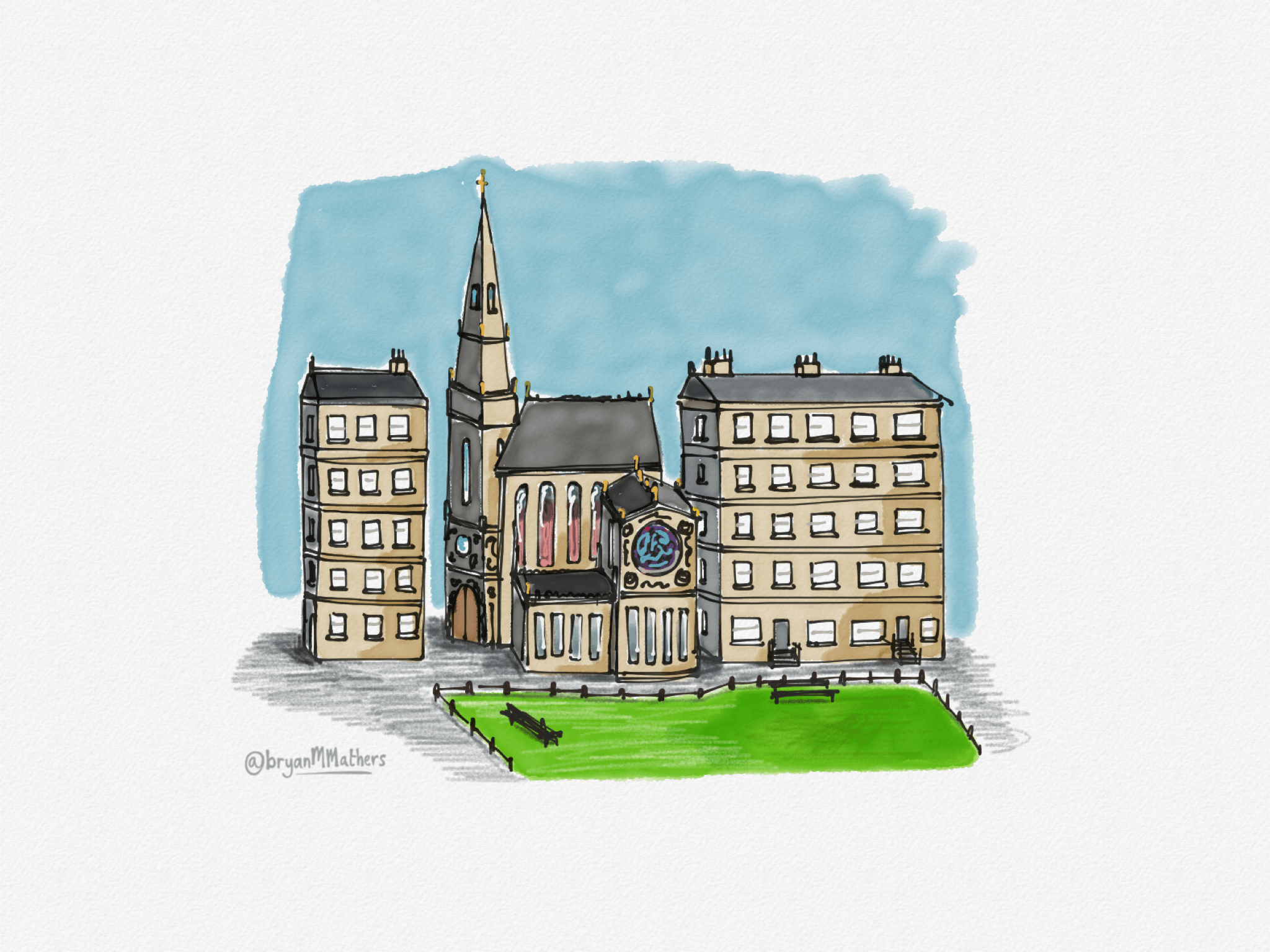
Glasgow
I used to live in Glasgow, Scotland – and it remains my favourite city. A warmth and humour despite (or possibly due to) the dreich weather. We lived in a top floor tenement flat next to a boisterous Celtic-Football-Club-supporting family. We soon figured out that if Celtic won a big game, we needed to sleep in one of the other rooms. I suppose that’s what community means; we ended up being great friends.
Highlights, Lowlights, Shadow…
-
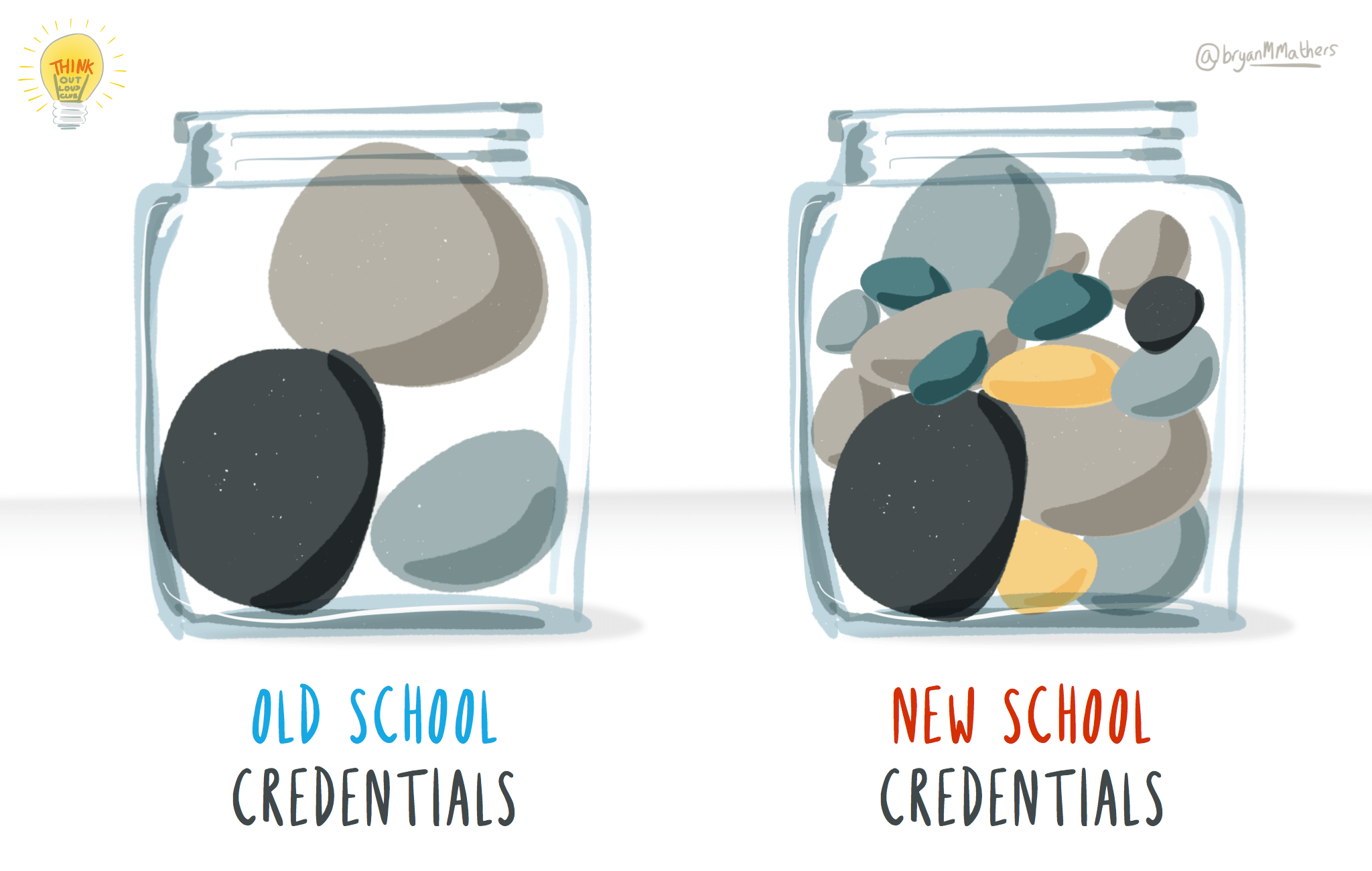
Credentials big and small…
Every time I find myself on a beach, I’ll be looking for a pebble that catches my eye. I’ll pick a few contenders, and over the course of a two week holiday will end up with maybe 100 pebbles. At the end of the holiday, I’ll take maybe two or three home. I have attached meaning to them.
I hired our first Rookie at wapisasa because of his ability to solve a Rubik’s Cube in under a minute, amongst other things. To me (as someone who needs somewhat longer than a minute) I saw persistence and a pattern-oriented mind that enjoyed solving problems. The small stuff matters, but is often unnoticed or undervalued.
This illustration originally formed part of some visual bloggery with Dr Doug Belshaw.
-
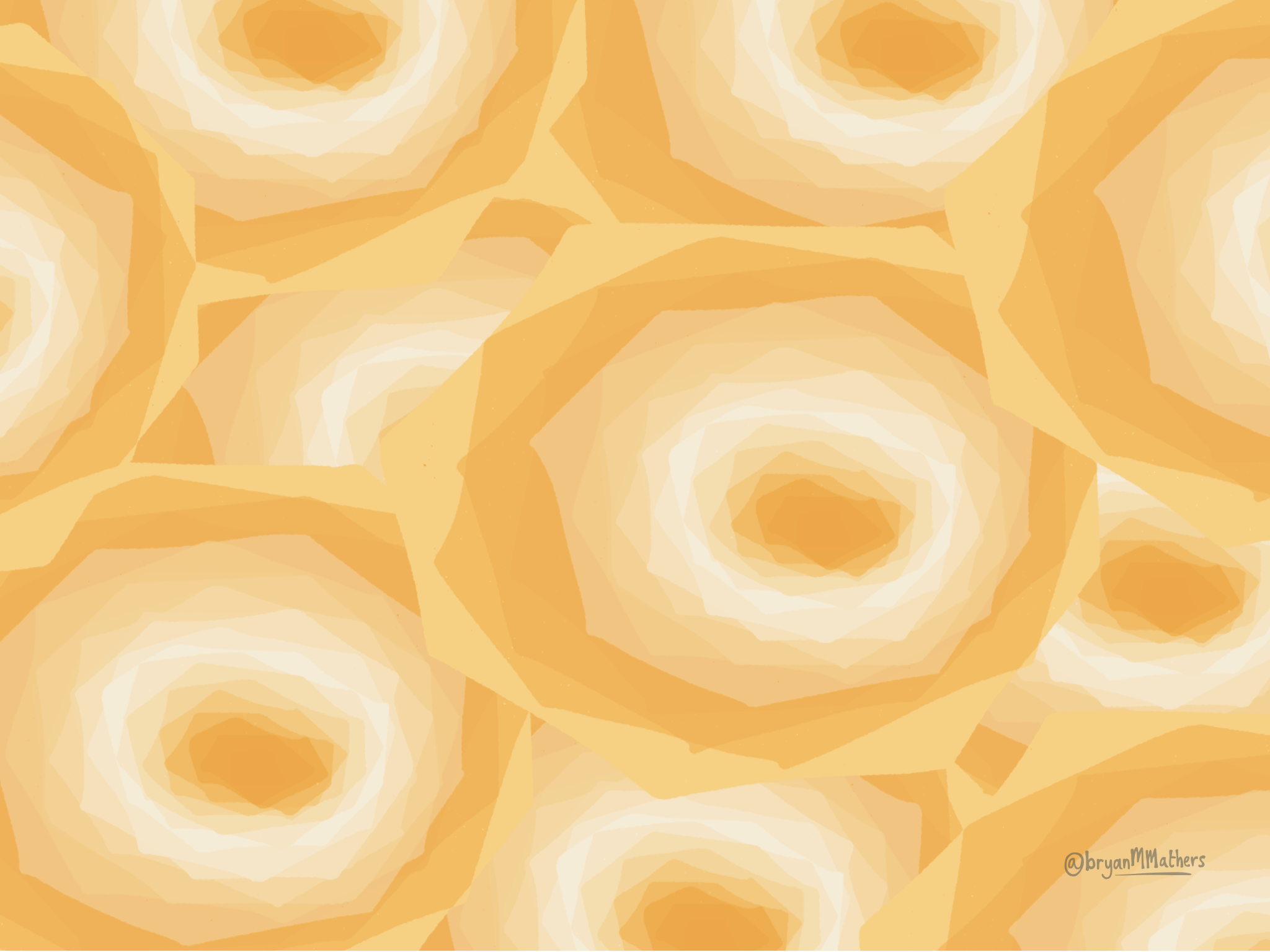
Flares*
It was Irish farmer practicality meets home improvement engineering. My gran grew the flowers. My mum dried them. And I, yes I, arranged them in little pots filled with cement. Pretty flowers now with added permanence…
Having said that, the same practical engineering had us making rafts every summer for the river. A few of them actually floated…
* flares is Northern Irish for flowers…
-
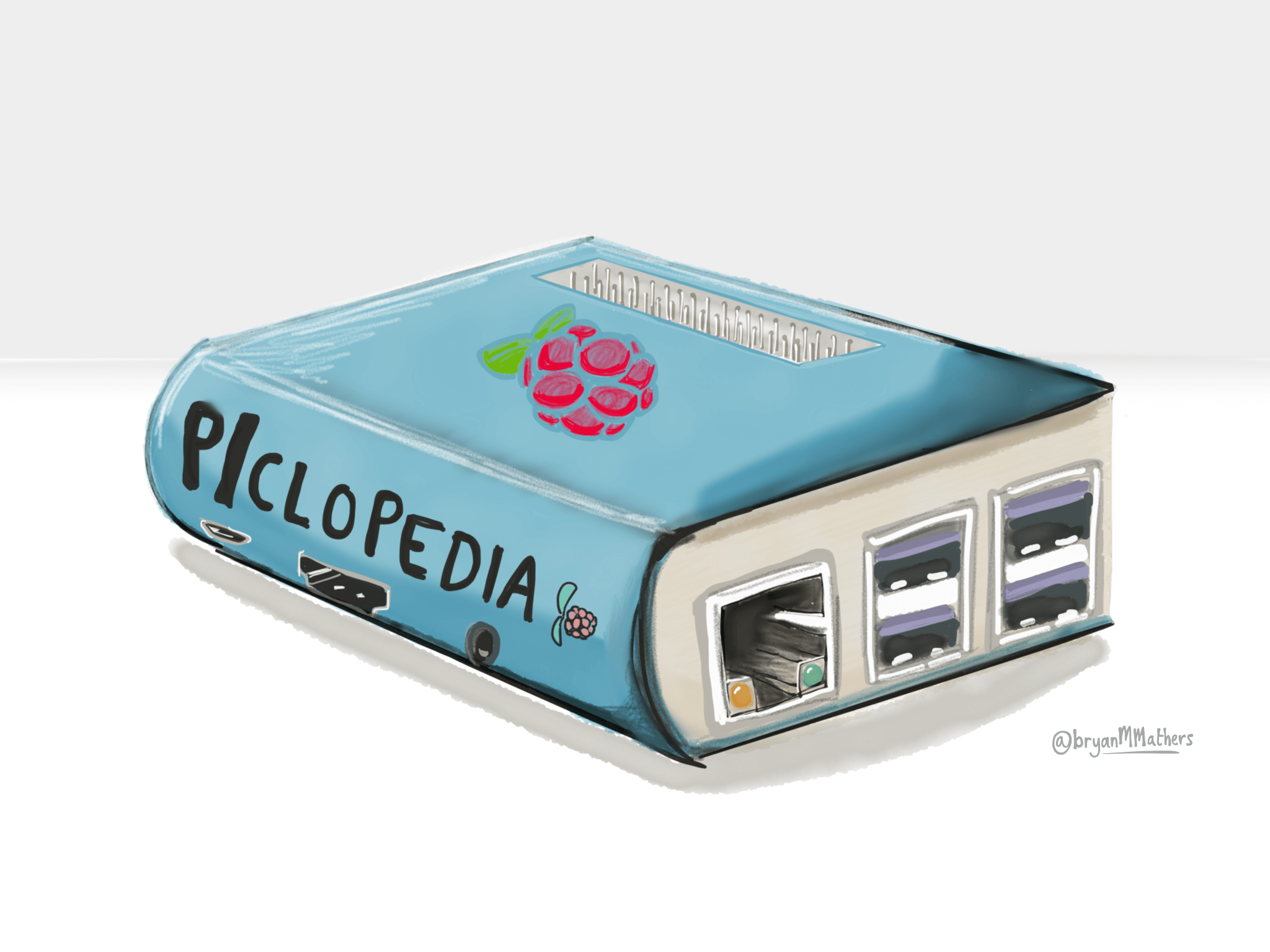
The Pi-clopedia
I don’t know about you but I’ve been tinkering in my man-shed. Curiosity-driven, soldering iron out, YouTube at the ready. The spirit of McGyver runs deep through my veins, and given enough time there is nothing I cannot make.
The Raspberry Pi? It’s a thing of beauty. Now then what shall I make it do? I’ve found the MagPi is a great place to start…
-
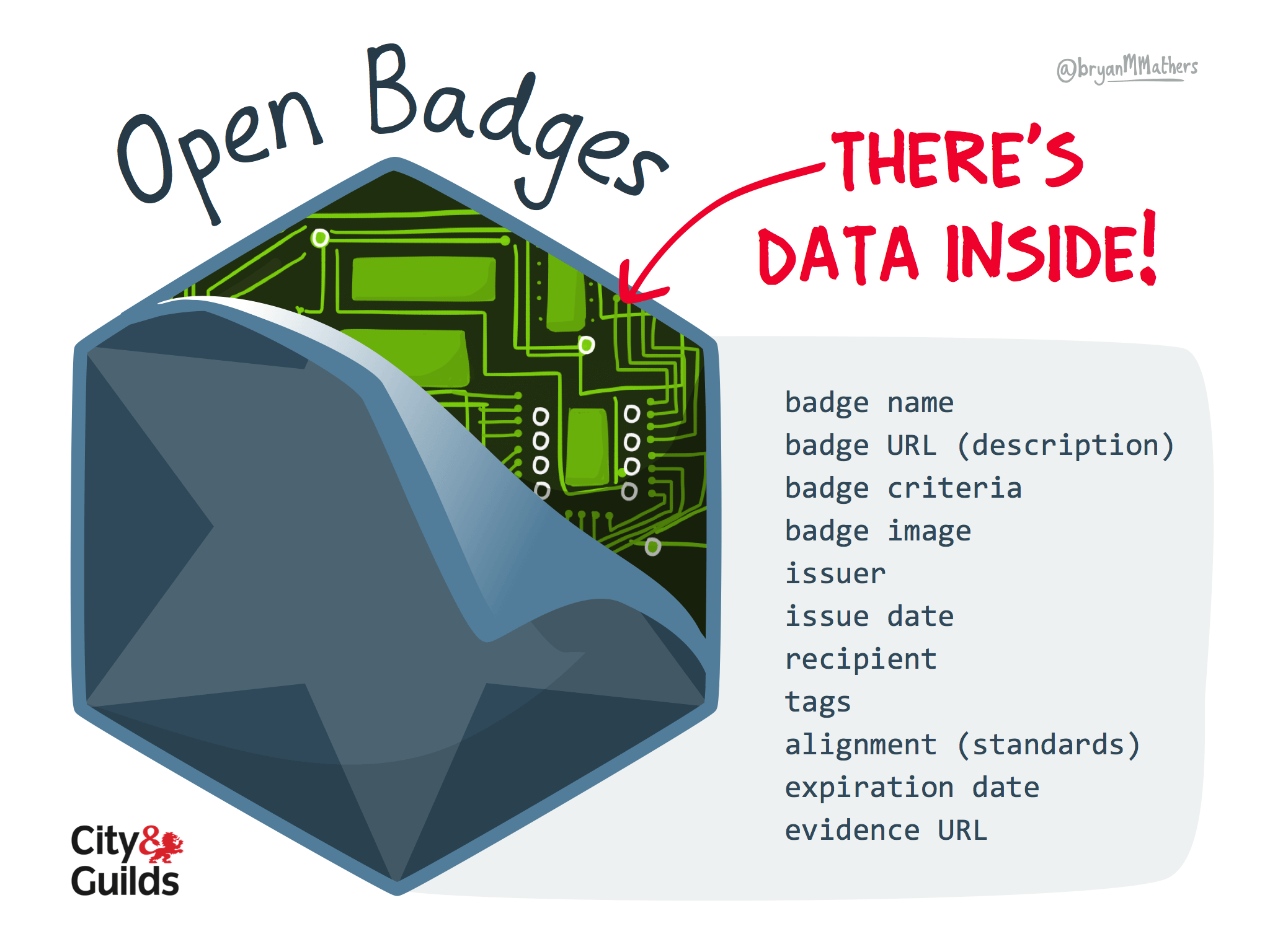
Open Badges (P.S. there’s data inside…)
Open Badges seem so simple, don’t they?
But wait – don’t make assumptions – ask questions! They’ve got stuff inside. Data. Authenticated data.
But the big news? – you can take them with you because they’re built on an open standard. They can be connected together to form a learning pathway. The data structure inside the badge can even be extended for a particular purpose.Curious? There’s loads more information (and pictures) here: OB101
-
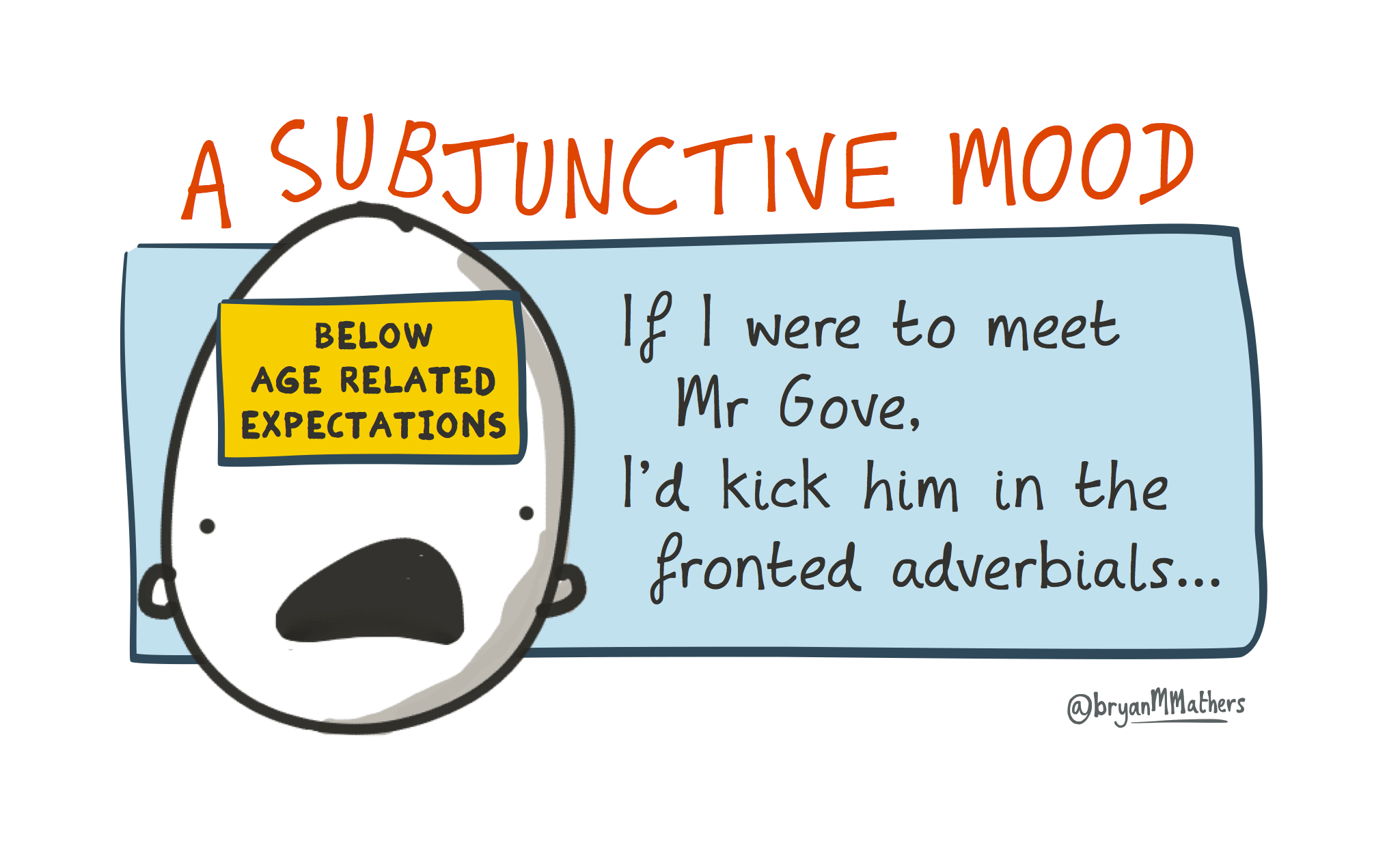
A subjunctive mood…
Primary schools in the UK have gone grammar mad. Essentially, although a kid may be dynamite in other areas, they can be labelled “below age related expectations”. What does that even mean?
In actual fact, we are natural grammarians. Kids sponge-brains can soak up new languages amazingly quickly, without any formal learning. It seems we are built to communicate. However, we are not natural statisticians. The brain has all sorts of clever short cuts (or biases) when it comes to making decisions. One of these biases is known as “post hoc ergo propter hoc“, (after this, therefore because of this). Essentially it’s the brain linking cause and effect between unrelated events, and the reason why the personal experience of a politician’s education gets turned into education policy.
For “smart” people, this isn’t very smart…
P.S. Here’s Michael Rosen’s take on the fronted adverbial…
